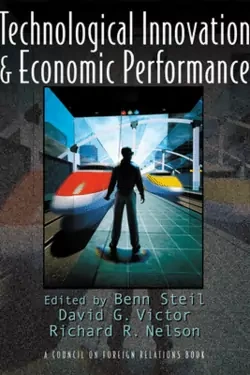
Technological Innovation and Economic Performance

- Book
- Foreign policy analyses written by CFR fellows and published by the trade presses, academic presses, or the Council on Foreign Relations Press.
This seminal volume brings together the research and critical thinking of many of the world's top macro- and micro-economists to provide a unique, multifaceted perspective on the causes of technological innovation and its relationship to economic performance. Through the use of detailed, up-to-date country and industry studies, this book provides the most authoritative and detailed analysis of this topic ever assembled.
Although technological innovation is widely viewed as the key to economic growth, there is no consensus on what makes some industries and countries more "innovative" than others, or exactly how innovations fuel an economy. The authors, leading economists and political scientists, have compiled evidence from nine countries and nine industries to draw several cautionary lessons for policymakers. For example, while innovation drove a late-1990s U.S. productivity surge in a few key computer-related industries, there is no evidence that this had a transformative effect on the rest of the economy. Conversely, Japan's extended slump was caused not by a failure to innovate, as many believe, but rather by deep-seated structural and macroeconomic failures.
More on:
Information technology accounts for more than one-third of recent U.S. economic growth and nearly two-thirds of corporate capital investment. "The new economy" appears omnipresent, but little is actually known about its workings. This book explores the phenomenon in studies of the United States, Japan, Germany, France, the United Kingdom, and the Nordic states. Nine industry studies examine the Internet, computers and semiconductors, banking, securities trading, venture capital, energy, agricultural biotechnology, pharmaceutical biotechnology, and automobiles.
A Council on Foreign Relations Book
More on:
 Online Store
Online Store